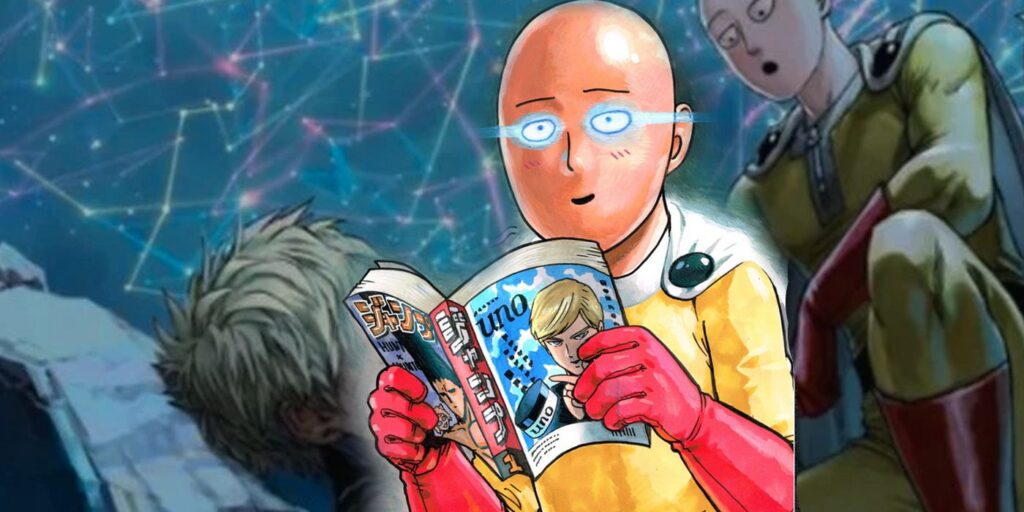Breaking Down the Satirical Elements in One-Punch Man

Introduction
One-Punch Man is a popular Japanese manga and anime series created by ONE. It tells the story of Saitama, a superhero who can defeat any opponent with just a single punch. While the series is known for its action-packed scenes and stunning animation, it also cleverly incorporates satirical elements that critique various aspects of society. In this article, we will delve into the satirical elements in One-Punch Man and explore how they contribute to the overall depth and entertainment value of the series.
The Hero Association and Celebrity Culture
One of the central satirical elements in One-Punch Man is the portrayal of the Hero Association. In the series, the Hero Association is a government-sponsored organization that ranks superheroes based on their abilities and popularity. It acts as a critique of celebrity culture and the obsession with fame and recognition.
The Hero Association’s ranking system is an exaggerated representation of how society values individuals based on their public image rather than their actual abilities. This satirical take on celebrity culture highlights the superficiality and shallowness of society’s obsession with fame. It also reflects the disconnect between a person’s true worth and their perceived value based on popularity alone.
The Subversion of Shonen Tropes
One-Punch Man cleverly satirizes traditional shonen tropes, which often involve intense training, epic battles, and dramatic character development. Saitama, the protagonist of One-Punch Man, breaks these tropes by being overwhelmingly powerful from the start. This satirical twist serves as a commentary on the predictability and repetitive nature of many shonen series.
By making Saitama so incredibly strong that he defeats any opponent with a single punch, the series subverts the expectations of its audience. It challenges the notion that a hero must face increasingly difficult challenges and overcome tremendous obstacles to grow and succeed. This satirical approach offers a fresh perspective on the genre and pokes fun at the formulaic nature of traditional shonen storytelling.
Critique of Superhero Stereotypes
Another satirical element in One-Punch Man is the portrayal of superhero stereotypes. The series often parodies common superhero archetypes and tropes seen in other comics and media. For example, the character of “Licenseless Rider” is a superhero who rides a bicycle and fights crime without any actual superpowers. This satirical take on superheroes mocks the idea of relying solely on flashy abilities or gadgets to be considered heroic.
One-Punch Man challenges the notion that superheroes must have extraordinary powers to make a difference. It emphasizes the importance of ordinary people taking action and doing their part to contribute to society, regardless of their inherent abilities. This satirical critique of superhero stereotypes promotes a more inclusive and relatable concept of heroism.
Satire on Social Issues
Beyond its satirical take on superhero tropes, One-Punch Man also uses humor to address various social issues. The series tackles topics such as bureaucracy, politics, environmental problems, and societal expectations. By presenting these serious issues in a satirical light, One-Punch Man encourages its audience to reflect on them in a more engaging and accessible manner.
For example, the character of “King” is a top-ranked hero known for his incredible strength. However, it is revealed that his reputation is built on a lie, and he is actually a coward who takes credit for the actions of others. This storyline satirizes the idea of hero worship and exposes the fragility of public perception.
The Role of Comedy in Satire
One-Punch Man effectively employs comedy to deliver its satirical elements. The series uses humor as a tool to highlight and critique societal issues, making it more engaging and entertaining for the audience. The comedic moments in One-Punch Man serve as a contrast to the serious themes being addressed, creating a balance that keeps the viewers invested in the story.
The use of comedy in satire also allows One-Punch Man to tackle sensitive or controversial subjects without being overly preachy or heavy-handed. By presenting serious issues in a lighthearted manner, the series opens up conversations and encourages critical thinking while still providing an enjoyable viewing experience.
Conclusion
One-Punch Man stands out as a remarkable piece of storytelling that goes beyond its action-packed scenes and stunning animation. Through its clever use of satire, the series critiques various aspects of society, including celebrity culture, superhero stereotypes, and social issues. By employing comedy to deliver its satirical elements, One-Punch Man provides an engaging and thought-provoking experience for its audience.
Whether you’re a fan of anime and manga or simply interested in exploring the satirical aspects of popular media, One-Punch Man offers a unique and enjoyable journey. Its ability to blend humor, action, and social commentary has earned it a special place in the hearts of fans worldwide. As you dive into the world of One-Punch Man, keep an eye out for the satirical elements that make it a truly exceptional series.
Read More
- Anniversary Flowers Online MiamiFlowersOnline Shop
- “Feuer Speiender Berg (umgangssprachlich) Vegas Bonus Program Code 2024 Aktionscode 55 Freispiele
- 10 Reward Nach Registrierung 10 Euro Gratis Casino
- Vulkan Vegas Casino Auszahlung Erfahrung ️ Standocs
- Vulkan Vegas Erfahrungen 2024: Betrug Oder Seriös? » Zum Test